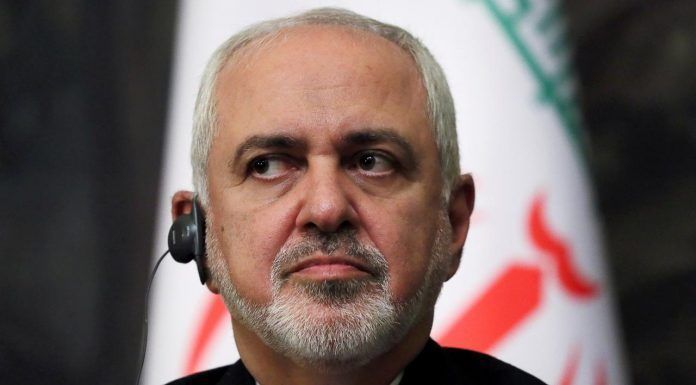By Michelle Nichols
UNITED NATIONS, July 17 (Reuters) – Iran‘s Foreign Minister Mohammad Javad Zarif said on Wednesday that tight U.S. travel restrictions on Iranian diplomats and their families living in New York are “basically inhuman.”
The diplomats are subject to the same rules imposed by the United States on Zarif, who arrived on Sunday amid heightened tensions between the two countries.
They may only travel between the United Nations, the Iranian U.N. mission, the Iranian U.N. ambassador’s residence, and John F. Kennedy airport. There is also a carve-out for the six blocks surrounding Queensboro Plaza in Long Island City in the borough of Queens, though it was not immediately clear why.
“It is certainly not a friendly action. It puts the members of the mission and their families under basically inhuman conditions. But for me it’s fine because I don’t have any work anywhere other than the three buildings,” Zarif told reporters at the United Nations.
Before the new rules, Iranian diplomats – like envoys of North Korea, Syria, and Cuba – were already confined to a radius of 25 miles (40 km) from Columbus Circle in Midtown Manhattan. According to the U.N. Blue Book, which lists diplomats of each mission to the world body, there are 13 Iranian diplomats in New York.
The United Nations said on Monday it had told the United States it was concerned by the new tight travel restrictions. A U.S. State Department official said the United States had acted “in a manner that is fully consistent” with its obligations under a 1947 agreement with the United Nations.
Longtime U.S.-Iran strains have worsened since U.S. President Donald Trump last year quit a 2015 international agreement to curb Iran‘s nuclear program in return for sanctions relief. Trump has imposed more sanctions on Iran.
In response, Tehran has cut some of its nuclear commitments under the deal.
“The United States is engaged in an economic war against Iran,” Zarif told reporters, shortly before he addressed a U.N. meeting on global goals to tackle issues including conflict, hunger, equality and climate change by 2030. “It targets ordinary civilians, it amounts to terrorism.”
When asked what steps need to be taken to de-escalate tensions between Washington and Tehran, Zarif said: “That has to stop. Once it stops, then other things can follow.”
Zarif said that he has had “no contact with anybody in the American government” while in New York.
He also questioned efforts by France, Britain, and Germany – parties to the 2015 nuclear pact – to try to salvage the deal.
“Unfortunately they’re not prepared to pay anything. They’re not prepared to invest for their security and at the end of the day they’re allowing the United States to set the agenda,” Zarif said.
“I don’t know whether that’s in the interests of the Europeans,” he added.
Fears of direct U.S.-Iranian conflict have risen since May with several attacks on oil tankers in the Persian Gulf, Iran‘s downing of a U.S. surveillance drone, and a plan for U.S. airstrikes on Iran last month that President Donald Trump called off at the last minute.
“It is a very dangerous situation. There are a lot of naval vessels in the Persian Gulf where they shouldn’t be,” Zarif said.
(Reporting by Michelle Nichols Editing by Susan Thomas and Jonathan Oatis)


